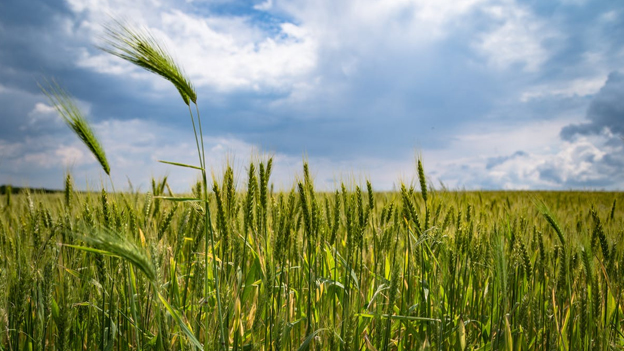The Role of Nano-Fertilizers in Sustainable Farming
Agricultural land is dwindling as a result of erosion, pollution, unintentional irrigation, and fertilisation. Increased agricultural production, on the other hand, is required to meet the demands of the rising industry as well as the nutritional needs of the growing population. Nano fertilizers have just begun to be manufactured in order to maximize the volume and quality of production per unit area. Previous research has shown that nano fertilisers boost plant nutrient usage efficiency, reduce soil toxicity, lessen the possible negative impacts of excessive chemical fertilizer use, and reduce fertilizer application frequency.
Nano fertilizers are significant in agriculture because they boost crop output and nutrient use efficiency while reducing the overuse of chemical fertilizers. The most important features of these fertilizers are that they contain one or more macro-and micronutrients, that they can be applied in small amounts frequently, and that they are environmentally friendly.
Role of Nano-fertilizers in Sustainable Farming
The agriculture sector in the production system is facing a wide range of issues, including decreased crop yields, reduced soil organic matter content, greater levels of multi-nutrient deficiencies, and harsh weather. Nano-fertilizers are more soluble and reactive, and they can dive deep into the cuticle, allowing for targeted distribution and controlled release.
Nano fertilizers are new, low-cost, environmentally friendly fertilisers that have the potential to play a role in agriculture. The role of these smart fertilisers in plant and soil systems has been thoroughly studied, and they can operate efficiently to increase agricultural production. Nanoparticles have a large surface area, sorption capacity, and controlled-release kinetics at specific spots, making them smart delivery systems. In agriculture, nano fertilizers are key instruments for improving crop growth, yield, and quality metrics with higher nutrient usage efficiency, lowering fertiliser waste and cultivation costs for sustainable farming. Increased amounts may limit crop development owing to nutrient toxicity, which is why it is essential to follow the directions provided before applying them to the plants.
Benefits of Nano-Fertilizers in Sustainable Farming
The following are the benefits of using nano-fertilizers:
- Nano fertilizers can help with nutrition management because of their high potential for increasing nutrient usage efficiency. Nutrients, either alone or in combination, are attached to nano-dimensional adsorbents, which release nutrients much more slowly than conventional fertilizers.
- Nano fertilisers improve nutrient use while lowering the cost of environmental protection. Enhancement of crop nutritional content and flavour quality. Iron utilisation is maximised, and protein content in crops is increased.
- It improves plant development by resisting infections and boosting plant stability through anti-bending and deeper roots of crops. It is also claimed that nanotechnology can be used to promote the balanced fertilisation of crop plants.
- Nano-fertilizers are more soluble and reactive, and they can penetrate deeper into the cuticle, allowing for targeted distribution and controlled release. Nano-fertilizers boost crop growth, yield, quality, and nutrient usage efficiency while reducing abiotic stress and heavy metal toxicity.
Excessive use of traditional fertilisers has contaminated the land, water, and food in the current context. Increasing agricultural output is essential. Nano technology is playing an important role in agriculture, as the use of nano fertilizers can help to reduce the number of fertilisers used by smartly delivering active ingredients, increase nutrient uptake and nutrient use efficiency, and reduce fertilizer losses due to volatilization, leaching, and runoff. Foliar nano fertilizer treatment is chosen over soil application due to considerable improvements in growth, yield, quality, physiological, and biochemical aspects.



